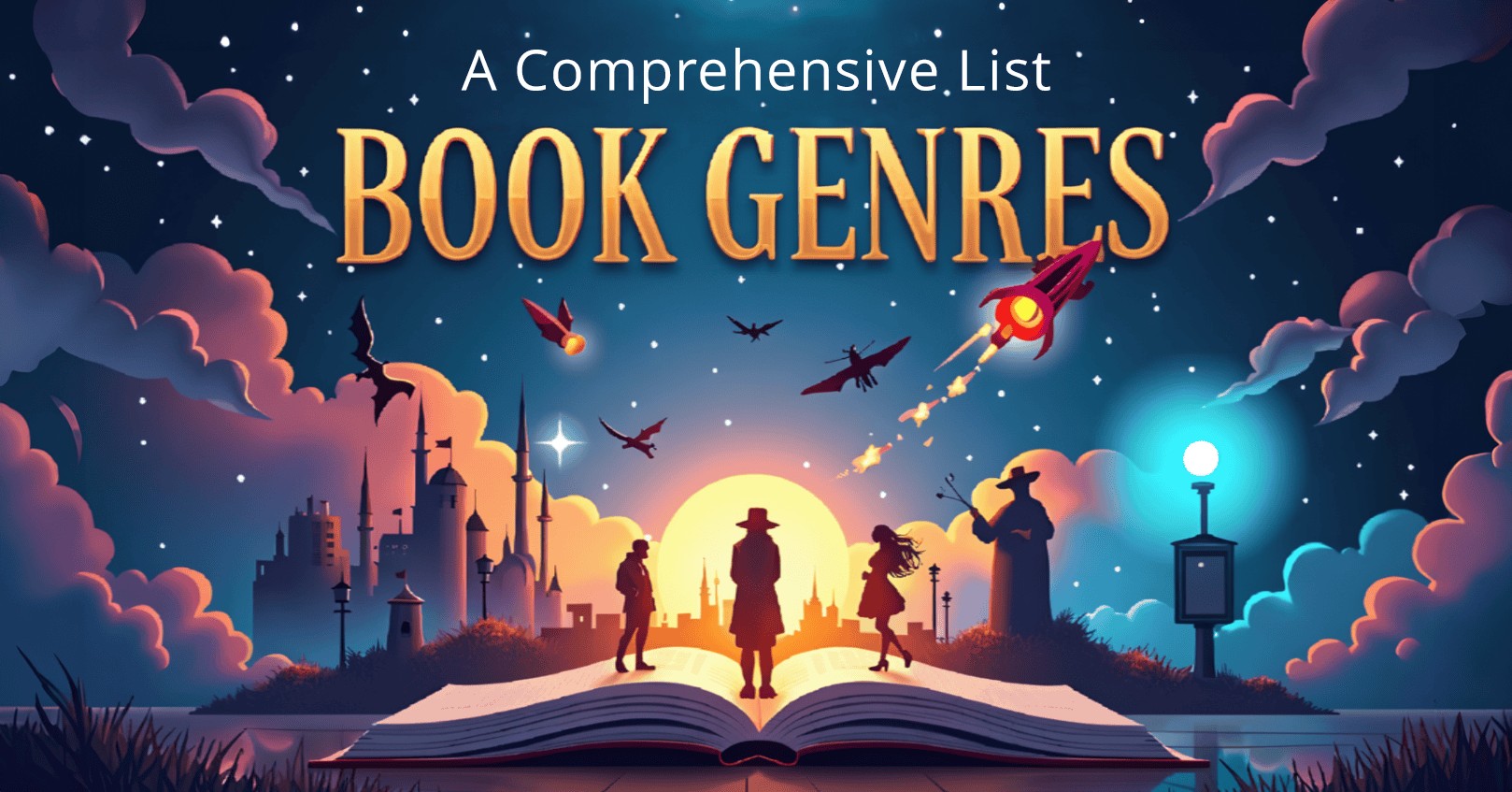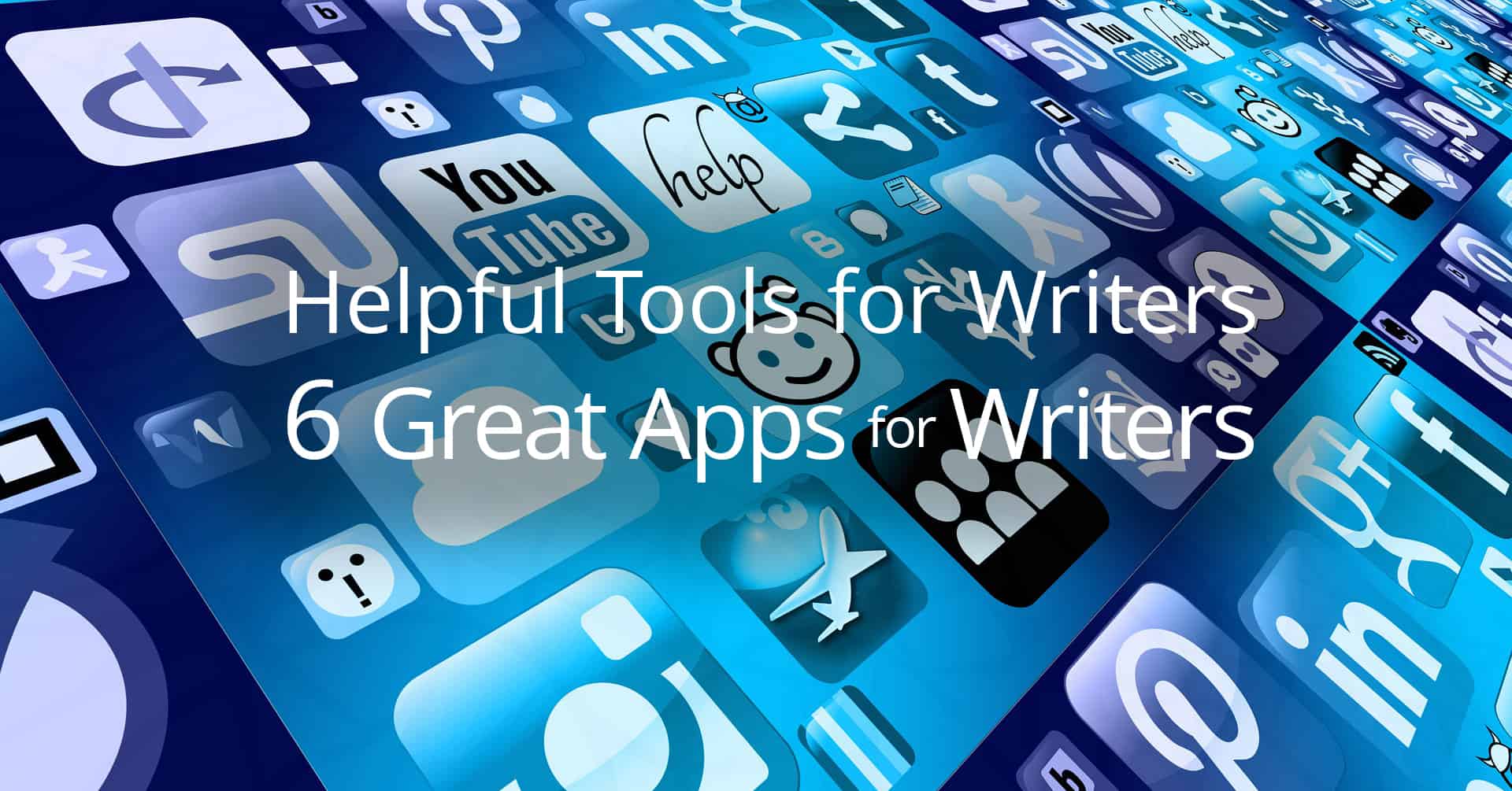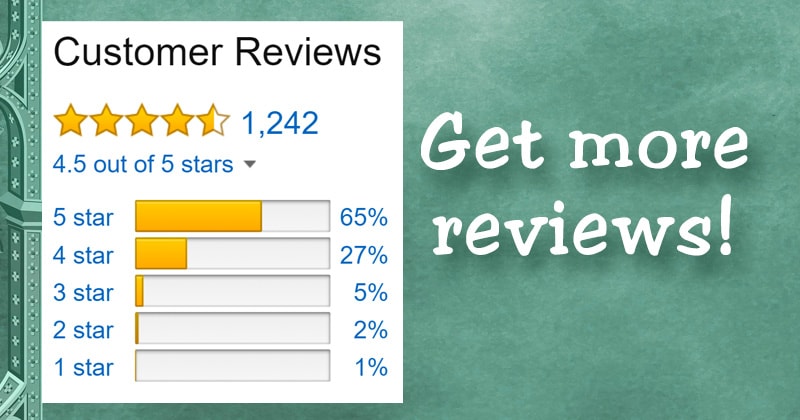
As an author, knowing your book’s genre is more than just a marketing decision—it’s essential for crafting a compelling story and reaching the right audience. Genres define reader expectations, shape storytelling conventions, and help publishers, booksellers, and readers categorize your work. Whether you’re blending genres or writing within a well-established category, understanding the nuances of different genres can elevate your writing, guide your creative decisions, and improve your chances of success in the literary world. This comprehensive guide explores a wide range of book genres, providing clarity and inspiration for authors at every stage of their writing journey.
Book Genres
A
- Action & Adventure – Fast-paced stories featuring daring exploits, physical challenges, and high-stakes survival. Often includes dangerous missions, escapes, and battles.
- Anthology – Collections of works by different authors, often centered around a theme or topic.
B
- Bildungsroman – Coming-of-age stories focusing on the psychological and moral growth of the protagonist.
- Biography – A factual account of a real person’s life, detailing their achievements, struggles, and legacy.
- Business & Economics – Books focusing on entrepreneurship, management, investing, finance, and economic theories.
C
- Chick Lit – Lighthearted fiction targeting a female audience, often involving romance, friendship, and self-discovery.
- Classics – Timeless literary works that have stood the test of time and are widely studied for their artistic merit.
- Christian Fiction – Stories that incorporate Christian themes, values, or biblical principles, often focusing on faith, redemption, and moral struggles. These books may range from contemporary dramas to historical settings, allegories, or speculative fiction, all with a spiritual message or perspective.
- Comedy – Fiction or nonfiction works that emphasize humor, satire, or witty dialogue.
- Coming of Age – Stories that focus on a character’s journey from youth to adulthood, often highlighting personal growth, self-discovery, and the challenges of maturity. These narratives explore themes of identity, independence, and life’s transitions, frequently set against the backdrop of adolescence or early adulthood.
- Cookbook/Culinary – Recipe collections and food writing.
- Crime – Stories revolving around criminal activities, investigations, and justice, often featuring detectives, law enforcement, or criminals.
D
- Detective Fiction – A specific subgenre of mystery focusing on a detective character solving a crime.
- Dystopian – Set in a future or alternate society where oppressive governments, environmental disasters, or extreme societal issues create conflict.
- Drama – Stories focusing on emotional themes, interpersonal conflicts, and realistic human struggles.
E
- Educational – Books designed to inform or teach about specific subjects, such as textbooks or how-to guides.
- Epic – Grand, sweeping narratives, often in fantasy or historical settings, featuring heroic characters and complex world-building.
- Erotica – Fiction centered around explicit romantic and sexual content.
- Experimental Fiction – Works that break conventional literary forms and techniques.
F
- Fairy Tale & Folklore – Traditional stories, myths, and legends passed down through generations, often featuring magic and moral lessons.
- Fantasy – Fiction set in magical worlds or featuring supernatural elements, mythical creatures, and legendary heroes. Subgenres include:
- High Fantasy – Grand epics like The Lord of the Rings.
- Urban Fantasy – Magic in modern-day settings, like Dresden Files.
- Dark Fantasy – Blends horror elements with fantasy, like The Witcher.
- Feminist Literature – Works that explore gender equality, women’s rights, and feminist perspectives.
- Fiction – A broad category of stories that are imagined rather than based on real events.
G
- Gothic – Dark, atmospheric fiction with elements of horror, mystery, and romance, often set in eerie locations.
- Graphic Novel – A story told primarily through illustrations and dialogue, often resembling a long comic book.
H
- Historical Fiction – Stories set in the past, often featuring real historical events and figures.
- Historical Non-fiction – Factual accounts of historical events (distinct from historical fiction).
- Horror – Designed to evoke fear, suspense, or dread, featuring supernatural or psychological elements.
I
- Inspirational – Books designed to uplift, motivate, or provide hope, often focusing on overcoming struggles.
- Interactive Fiction – Books where readers make choices that affect the storyline.
J
- Journalism/Reportage – In-depth reporting and journalistic narratives.
- Juvenile (Children’s Literature) – Books written for children, often featuring simple plots, moral lessons, and imaginative elements.
L
- LGBTQ+ – Books featuring LGBTQ+ themes, characters, and experiences, spanning various genres.
- Legal Thriller – Fiction centered around law, court cases, and legal drama, often featuring lawyers and ethical dilemmas.
- Literary Fiction – Character-driven fiction with deeper themes, symbolism, and artistic writing styles.
M
- Magical Realism – Fiction that blends everyday life with magical elements, where the supernatural is accepted as normal.
- Manga – Japanese comic books and graphic novels with a distinctive style.
- Memoir – A personal narrative about an individual’s life experiences, typically focused on a specific theme or period.
- Military Fiction – Stories featuring soldiers, wars, and military operations, often realistic or speculative.
- Modernism/Postmodernism – Literary movements characterized by specific styles and themes.
- Mystery – Stories centered around solving a puzzle, crime, or unexplained event, often featuring detectives.
N
- New Adult (NA) – Fiction featuring protagonists in their late teens or early twenties, exploring coming-of-age themes.
- Noir – Dark, cynical fiction often featuring morally ambiguous characters.
- Nonfiction – Books based on factual information, including history, biographies, and self-help books.
- Novella – Works longer than short stories but shorter than novels.
O
- Occult – Books about mysticism, magic practices, and esoteric knowledge.
P
- Paranormal – Fiction featuring supernatural beings like ghosts, vampires, or psychics, often blended with romance or mystery.
- Parody – Imitative works that mock or comment on the original through humor.
- Philosophy – Books discussing existential, ethical, and theoretical ideas about life and reality.
- Poetry – Literature written in verse, focusing on rhythm, metaphor, and emotional expression.
- Political Thriller – Fiction involving espionage, government conspiracies, and political intrigue.
- Post-Apocalyptic – Stories set after a catastrophic event that has drastically changed civilization.
- Psychological Thriller – Stories that explore the complexities of the mind, often featuring unreliable narrators and deep psychological tension.
R
- Realistic Fiction – Contemporary stories set in the real world without fantasy elements.
- Reference – Dictionaries, encyclopedias, and other information compilations.
- Religious & Spiritual – Books focused on faith, theology, and personal spiritual growth.
- Romance – Stories centered around romantic relationships, often with an emotionally satisfying ending. Subgenres include:
- Historical Romance – Love stories set in the past.
- Contemporary Romance – Modern-day romance tales.
- Paranormal Romance – Love stories featuring supernatural elements.
S
- Satire – Fiction or nonfiction that uses humor, irony, and exaggeration to critique society or politics.
- Science Fiction (Sci-Fi) – Stories based on speculative technology, space travel, futuristic settings, and scientific principles. Subgenres include:
- Hard Sci-Fi – Focuses on realistic scientific accuracy.
- Space Opera – Large-scale space adventures, like Star Wars.
- Cyberpunk – High-tech, dystopian futures, like Neuromancer.
- Science & Nature Writing – Non-fiction about scientific discoveries and natural phenomena.
- Self-Help – Books designed to help readers improve aspects of their lives, such as productivity, relationships, or mental well-being.
- Short Stories – A collection of brief fictional works, each with a contained narrative.
- Steampunk – A fusion of Victorian-era aesthetics and advanced steam-powered technology.
- Superhero Fiction – Stories featuring characters with extraordinary abilities, often in comic book-style settings.
T
- Thriller – Suspenseful stories with fast-paced plots, high stakes, and intense action.
- Time Travel – Fiction where characters move between different points in time, often exploring paradoxes and alternate realities.
- Tragedy – Stories with unhappy endings focusing on the downfall of the protagonist.
- Travel Literature – Books that explore different cultures, places, and personal experiences through travel narratives.
- True Crime – Nonfiction accounts of real-life crimes, criminals, and investigations.
Y
- Young Adult (YA) – Fiction aimed at teenagers, often dealing with coming-of-age themes.
The Power of Genre in Storytelling
Genres are the foundation of storytelling, offering both structure and creative freedom. By understanding the distinctions and expectations of each genre, authors can craft stories that resonate with their intended audience while also pushing the boundaries of creativity. Whether you’re working within a familiar genre or exploring new literary territory, knowing about genre empowers you to write with confidence and purpose. So, as you embark on your next writing project, let genre be your guide—and your gateway to unforgettable storytelling.
Please let us know below if we’ve missed any genres!















Comments